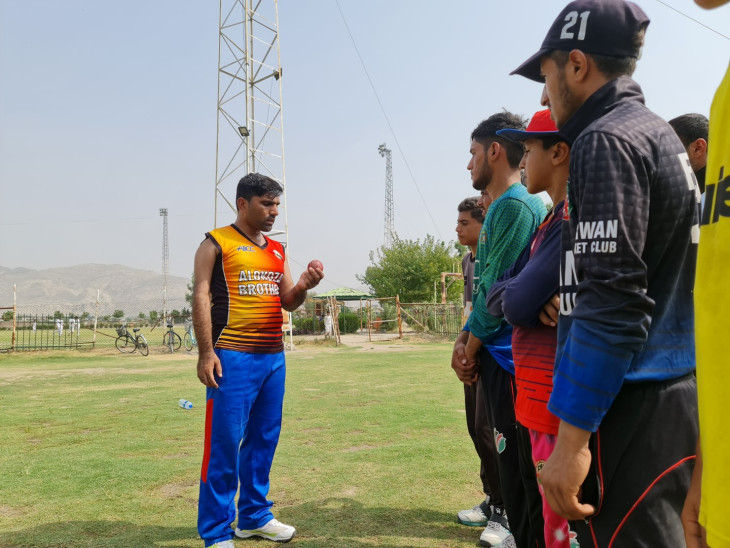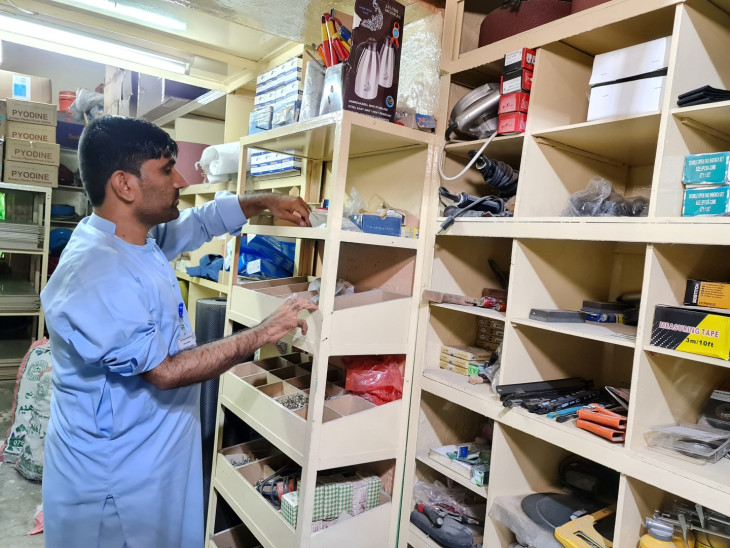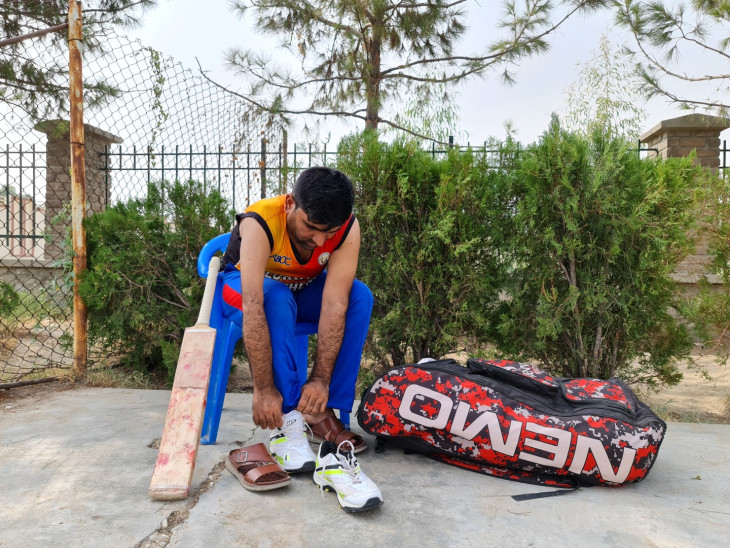Born in 1989 in Sorkh Rod district of Nangarhar province, Amirzai was only a toddler when his family fled to a neighbouring country along with thousands of others to escape the ongoing conflict in Afghanistan. The family was still reeling under the impact of displacement when Amirzai contracted polio, an incurable disease caused by a virus that attacks the nervous system.
Coming to terms
“I caught a fever when I was three years old, and my parents thought it was normal sickness. However, my condition worsened and I suffered from unbearable body pain and couldn’t stand properly. My mother was very scared,” he says.
Amirzai’s parents were devastated when his condition was diagnosed following some tests. “It was much more difficult for my parents to accept than it was for me as a child. As I grew older, it was disheartening that I couldn’t move like other children,” he says. Amirzai was taken to many hospitals in Afghanistan and Pakistan and underwent three surgeries – on his elbow, shoulder and chest.
“Travelling alone or completing a chore on my own were among the many challenges I had to overcome. I also had to deal with unpleasant interactions with people around me. People with disabilities are not valued in our society and are not treated with the same respect and tolerance as others. They are seen as a burden,” says Amirzai.
Overcoming odds
However, Amirzai was determined to work hard, train to play cricket and live independently. He pursued a bachelor’s degree in economics and in 2011, began working as a daily worker with the International Committee of the Red Cross (ICRC) at the physical rehabilitation centre (PRC) in Jalalabad.
Amirzai, whose right arm is paralysed because of polio, works hard to pursue his dreams and be independent. (PHOTO: Shahwali ILBANDWAL/ICRC)
“A driver at the ICRC told me about the organization’s social integration programme and recruitment process. After four months of being a daily worker, I was hired on merit basis as a storekeeper. Today, I am very happy with my job since it allows me to provide for my eight-member family and help people with disabilities. I am able to understand their situation better,” says Amirzai.

Amirzai believes that people with disabilities should trust their skills and push forward. (PHOTO: Shahwali ILBANDWAL/ICRC)
Talking about cricket, Amirzai says he was interested in playing the game from a young age. He worked hard and trained for years before being finally selected in 2015 to play for Afghanistan’s national cricket team of persons with disabilities. “Since then, I have participated in both national and international cricket tournaments and we have many achievements to our name. I am currently coaching other people with disability,” he says.

Using his experience, Amirzai coaches other players with disabilities in Jalalabad city. (PHOTO: Shahwali ILBANDWAL/ICRC)
Amirzai believes that people with disabilities should trust their skills and never think they are incapable of doing something. “They will achieve similar results if they work as hard as people without disabilities do,” he says.

Amirzai works at the warehouse of the ICRC’s physical rehabilitation centre in Jalalabad city. (PHOTO: Shahwali ILBANDWAL/ICRC)
A need to invest in health care
Since 2021, the ICRC’s physical rehabilitation centres in Afghanistan have provided physical and social rehabilitation services to 559 patients affected by polio patients. We also employ 152 people with polio-related disabilities across our seven physical rehabilitation centres.
“Like other people with disabilities, patients affected by polio first go through physiotherapy and are then provided with orthotics and walking aids,” says Najmuddin Helal, ICRC’s physical rehabilitation manager in Kabul. To help them integrate in society, teenagers and young adults are enrolled in vocational training courses and are provided with microcredit loans to start a small business or assisted in finding a job. “Sport is also highly encouraged,” says Helal.
Afghanistan is one of only two countries in the world where polio remains endemic, with children under the age of five being most vulnerable. We urge the international community and donor organizations to reinvest in Afghanistan’s health sector, which will allow millions of people get access to basic health care.
We acknowledge Source link for the information.



